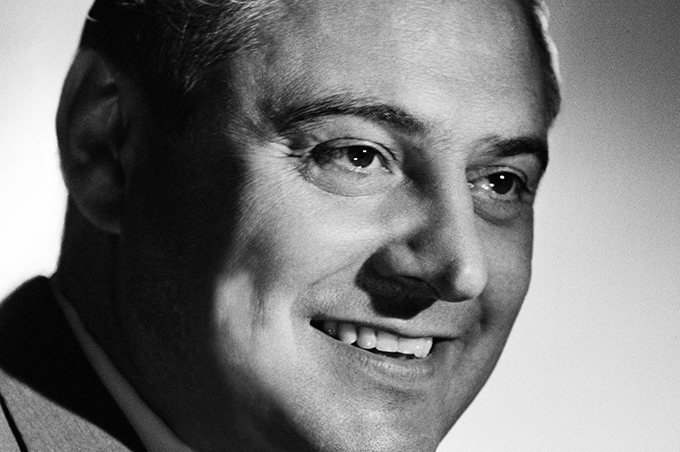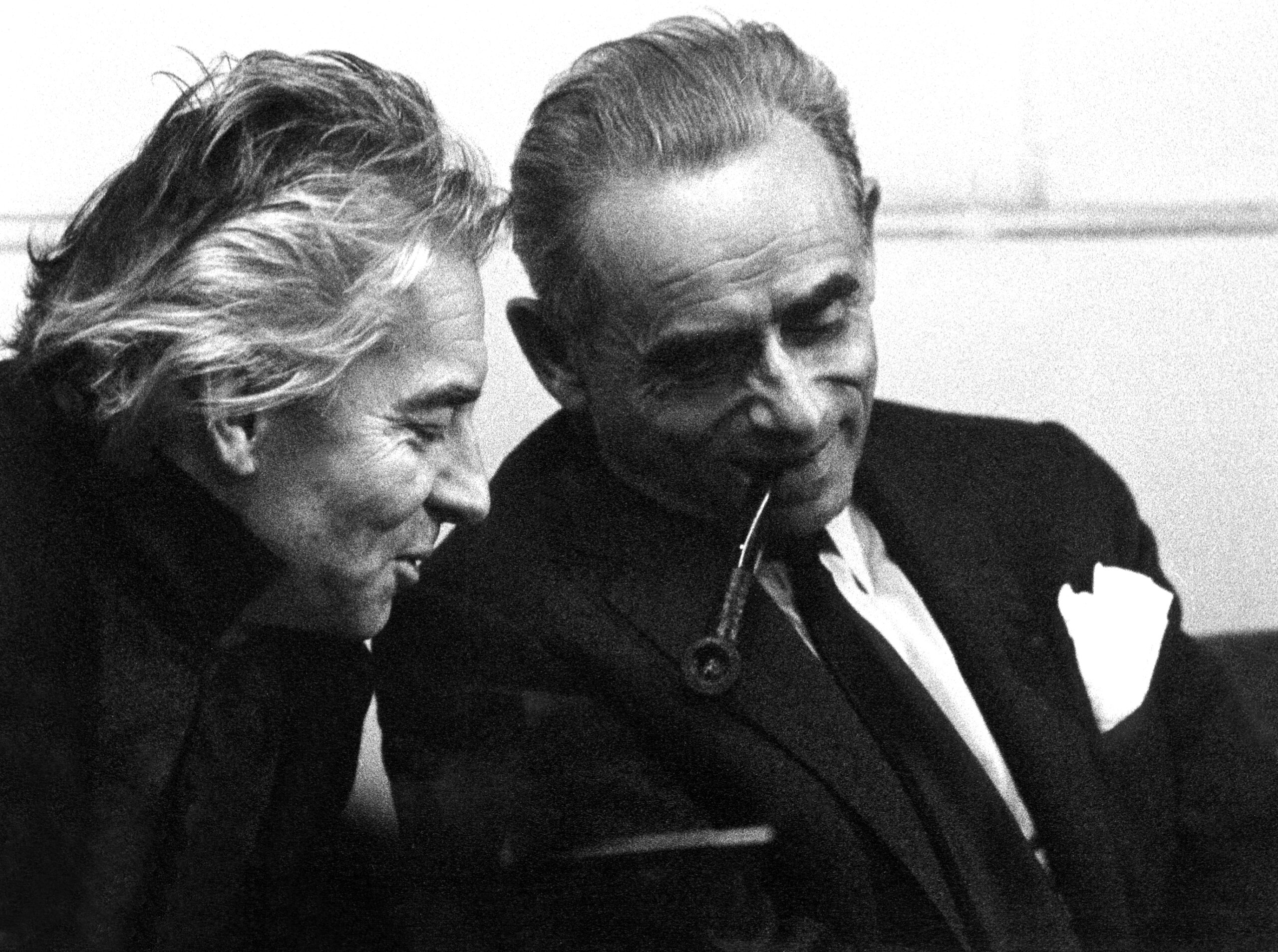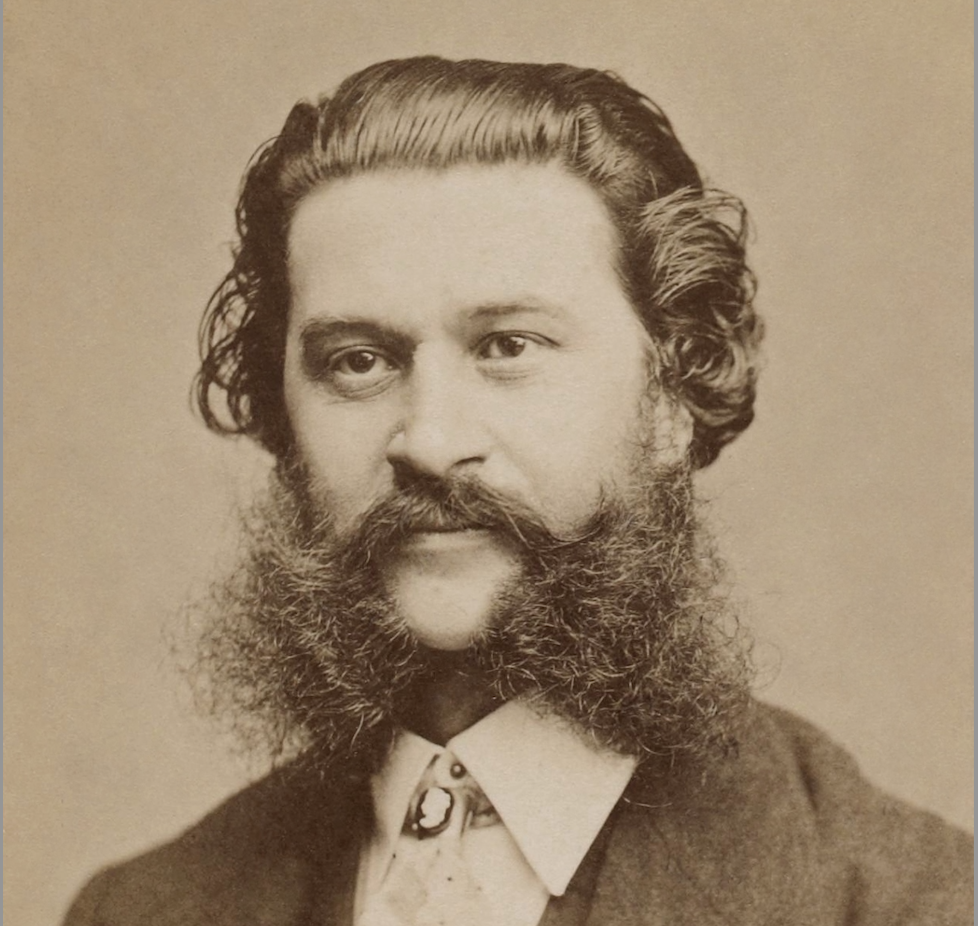18 October 2024
P.R. Jenkins
Karajan artists: Otto Edelmann – a “noble man” as Sachs and Ochs

Otto Edelmann (the name means “noble man” in German) was a singer Karajan loved to work with. The bass-baritone from Vienna was “trained” by Karajan in his early years and taken through marathon parts like Hans Sachs with never-ending patience. Karajan hadn’t performed with Edelmann very often (only one “St Matthew Passion” in 1950) but offered him that part for his 1951 “Die Meistersinger” production in Bayreuth. It was not only Edelmann’s but also Karajan’s Bayreuth debut. Edelmann recalled: “I was totally confused. Only a singer can imagine what it means for a 34-year-old to sing Sachs in Bayreuth, on that holy ground! […] Karajan worked with me on the role in between times in Vienna. God alone knows how much I owe him.” Karajan had forbidden him to sing out until the dress rehearsal and that paid off. Edelmann: “At the end of the performance, my voice was in as good a shape as it had been at the outset.” But there was no break for Edelmann after Bayreuth. “Karajan demanded that I study Sachs in four months. I did it. Next year, he asked for Ochs [in “Der Rosenkavalier”] in four months. I said: ‘Herr von Karajan, how shall I do this?’ He said: ‘Come on, you’re able to sing everything at first sight.’ I said: ‘Yes, but what about the text?’ He said: ‘Oh, you’re right. Okay, you simply have to practise day and night!’”
Edelmann’s debut in the role of Ochs that was destined to become his most famous was at the Scala di Milan on 26 January 1952. Karajan conducted and did the staging (two weeks before, during the rehearsals at the Scala, Edelmann had a single appearance in a Karajan “Fidelio”). His Ochs, more precisely Baron Ochs auf Lerchenau, “remains the absolute model for the next generations”, as Karajan put it 35 years later. Edelmann, who had not only the voice but also the comical gift and the physical condition for the part, performed it 236 times in his career – 19 times with Karajan, up to their last joint performance on 29 August 1964 (it was also the last joint performance of Karajan and Elisabeth Schwarzkopf). Apart from their last and first “Rosenkavalier”, there are three other occasions that for Edelmann were not merely memorable, but unforgettable: the studio recording in 1956, the inauguration of the new Salzburg Festspielhaus on 26 July 1960 and the “Rosenkavalier” film the same year. The 1956 set was Karajan’s first recording in the studio. Richard Osborne remarks that there had been plans for a recording already at La Scala but the project failed because of the financial demands made by the Scala orchestra. “When the recording was finally made, in December 1956, there was a different (and better) orchestra and Schwarzkopf [as Marschallin] and Edelmann had grown even further into their roles.” What was it that Edelmann had grown into? What is the crucial point of the part? Karajan had a very specific idea of it:
“There were many Baron Ochses living in Austria between the wars and living in their castles in a style that was far from elegant – in fact, very uncomfortable, as these were not good times for such people. What annoyed me when I saw Ochs on stage in productions at that time was that he was played as a grotesque, everything greatly exaggerated. But Ochs is not a buffoon. He has been at court, he is an educated man. He may have the smell of the countryside about him but he knows how to behave.”
Another part Edelmann developed with Karajan in the 1950s at La Scala was Heinrich der Vogler in “Lohengrin”. In Vienna they presented eleven concerts between 1953 and 1955, performing a lot of Beethoven (the Ninth and a concert “Fidelio” with Edelmann as Rocco) and Bach’s St Matthew Passion. When Karajan took over the Vienna State Opera in 1957, their collaboration became even more regular. Edelmann was Rocco and Wotan/Wanderer in “The Valkyrie” and “Siegfried”. In the Salzburg seasons 1957 and 1958 they also teamed up for “Fidelio”.
In 1987, Edelmann published his memoirs and Karajan agreed to write a preface.
“The memories of this artist are among the dearest in my entire career. I worked with him on almost every major part in his repertoire. […] His splendid voice, his great musicality and above all his charming personality impressed me and every great musician. He is a man who ranks among the most pleasant and devoted of artists.”
We’ve prepared playlists with Karajan and Otto Edelmann. Listen to them here.
— P.R. JenkinsDa Capo – Interview with August Everding, 23 March 1997, 3sat
Steffi-Maria Schlinke: “Otto Edelmann – ein Meistersinger aus Wien”, Österreichischer Bundesverlag, Wien 1987
Richard Osborne: “Karajan. A Life in Music” Chatto & Windus, London. 1998
“Conversations with Karajan” Edited with an Introduction by Richard Osborne. Oxford University Press. 1989
Richard Osborne: Booklet of “Der Rosenkavalier”, EMI 2001/2006


